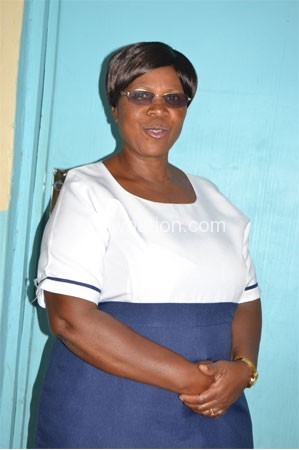ellen matabwa: dedicated to helping expectant women
She has dedicated her life to helping expectant women and their newborn babies. She is the owner of Nkhalango Clinic which provides medical services to many people, especially expectant women living in areas outside Lilongwe City who cannot afford private hospital bills. She has also opened outreach centres for antenatal care for women in rural areas who cannot travel to hospitals because of long distances. RACHEL KACHALI writes:
Who are you?
My name is Ellen Matabwa, a nurse and administrator of Nkhalango Clinic in Lilongwe. I was born in 1947 in T/A Chimaliro in Thyolo District. I am married to Dr. Charles Matabwa. We have two children—Gift Kadzamira and Lackson Matabwa—who have blessed us with six grandchildren. I am passionate about women and children’s health.
How was your upbringing?
I am the last born in a family of nine children. I grew up in a village and was raised by a single mother. I was touched by how my mother worked to keep us all in school and provide food for the whole family. This made me realise the importance of women in a society at a young age. I used to think of how hard it was for children who were not raised by a female parent. Thus right after I wrote my primary school leaving certificate examinations (PSLCE) at Goliati Full Primary School, I applied for a nursing training at Fatima Mission Hospital because I wanted to help improve the health of women. But before I was to leave for Fatima, I was called to Malosa Secondary School where I did my secondary education. After completing my Form Four, I went to St Anne’s Hospital in Nkhotakota and studied midwifery for two years. Then I went to Nkhoma Synod to complete general nursing. Because of my two-year experience in midwifery, I was able to help out at Nkhoma Hospital during my general nursing studies. I have worked at a couple of hospitals, such as Chitedze, before joining the Ministry of Health at Bwaila Hospital in Lilongwe. I have worked at Bwaila till 2001 when I started my private practice.
Why did you decide to help women through Nkhalango Clinic?
We moved to Lilongwe after my husband was given another post in the Ministry of Agriculture. I was saddened at the growing number of maternal and infant mortality in areas such as Likuni (where I stay), Chinsapo, Ntchentche, Chitipi, Chigwirizano and other areas outside Lilongwe City. I used to feel sorry whenever I attended funerals of women who died in childbirth. Because of my nursing skills I realised that some of the deaths were preventable. I knew that what the expectant mothers needed most was antenatal care. So before I did anything, I sought permission from my village head in Likuni and the District Hospital Office (DHO) at Bwaila where I was working.
Then I rented a room along the road where I helped the women with antenatal services. I did not have much money. I remember buying supplies such as thermometers one by one until I had all equipment needed for antenatal care. This was in 2001. I used to serve 20 to 30 women a day. I was also providing counselling to the women and encouraged them to come with their husbands. If there were complications in their pregnancy I used to refer them to Bwaila Hospital or Likuni Mission Hospital. I later hired an assistant.
Then the numbers started growing day by day after many people learnt about the services that were offered. The space was now too small and I was needed almost the whole day. So I wrote the DHO asking to resign to concentrate on my practice. I also applied for a licence and started operating the health centre on a daily basis. In 2004, I moved to the current premises, which I named Nkhalango Clinic. The women continued to come so I constructed a maternity wing and then a waiting home since the women were delivering here. Besides safe motherhood, the clinic also offers services such as under-five health care programmes, family planning and VCT for young people.
Who gets services from Nkhalango Clinic?
I usually assist women from outside Lilongwe Lilongwe City, especially from areas such as Chigwirizano, Chinsapo, Chitipi, Njerwa, Kalolo, Malili, Dzapita, Ntchentche Malingunde and other areas. I also provide medical services to people living in Lilongwe and other districts as well.
What are the outreach centres about?
I always advise the women that the most important thing for an expectant woman is to make sure that she attends antenatal care regularly. However, this is denied to many women from rural and hard-to-reach areas where hospitals are far away and the women themselves, because of their condition, cannot walk those long distances. That is why I have opened those places. I have a nurse and a health surveillance assistant (HSA) who attends to the women. But they call me whenever there’s a situation that they cannot handle. Patients are not admitted at these outreach centres because there is no resident personnel.
How do you maintain this clinic?
This is the hard part. I always thank God that we survive every day in his grace. The truth is that these workers do not get what they deserve. The highest salary is K30 000 for the nurse, which is not even enough for basic needs. I wish I had other means of securing funds. Still I make sure that at the end of every month everybody gets paid and I buy drugs and essential medical supplies.
I ask the women who come for the antenatal services to pay K600 for the whole duration. After deliverance they pay the little they have which can be K1 000 or more. This is also hard to maintain as most of the women are from rural areas and cannot afford even K1 000. Some just leave their health passports behind assuring us that they will come back, but never do. Sometimes I get help from well-wishers. I remember a time when the clinic was in need of some essential drugs and I received K100 000 from a Mrs Phiri who was once a patient here.
My husband has been the biggest supporter. He has been paying all the utility bills here. It is only recently that I bought solar equipment. But we still need alternative water sources such as a borehole.
I have a car which my husband bought for me to use when transporting patients with serious complications to Likuni Mission Hospital or Bwaila Hospital. My son usually drives the patients when I am taking care of other patients. But one car is not enough as sometimes we have more than one patient and at odd hours. But I am glad to say that recently I was assured that I will receive an ambulance from a certain family in Spain who were interested in what we do here.
What other services do you offer?
On Monday, it is family planning day. I encourage married women to bring their husbands and counsel them on sexual reproductive health and on the use of contraceptives. I was privileged to be trained in family planning organised by Banja La Mtsogolo (BLM) and Ministry of Health.
On Tuesday, women come for antenatal services. Some come for HIV tests while others come to get medication such as ARVs, which we get from the DHO and BLM as a partner in the Blue Star initiative.
Wednesday is a general cleaning day. Hygiene and sanitation need to be emphasised in health centres. We believe that a clean hospital environment is ideal for a patient’s recovery and can help reduce the spread of diseases. It is important to keep the air that the patient breathes as pure as possible. That is why there are also many trees surrounding this clinic.
We also provide under-five health care programmes on Friday where we encourage parents to bring their children between six months and five years for postnatal service.
How do you encourage women and girls who want to pursue nursing?
First and foremost, I let people know that nursing is a calling. If you choose nursing, you are prepared to spend your life helping other people. I have encouraged a couple of nurses who have now started their own health centres. There is, for example, Charity Salima who has her practice in Area 23 and another woman who has a clinic in Lumbadzi.
How do you spend your free time?
I barely have free time as I am at the health centre almost every day. Usually, whenever I am not working, I enjoy listening to spiritual songs. I am a choir member myself and I belong to a Chigwirizano Women’s Guild. I also like spending time with my family.






